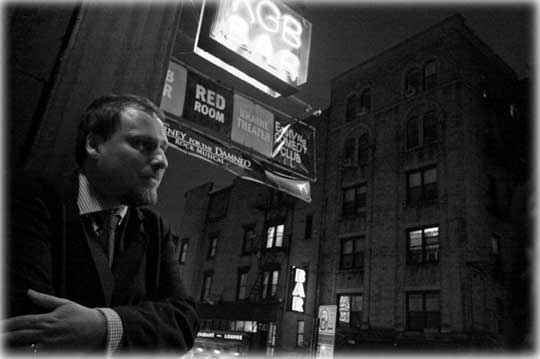One of several enticements of the internet for a literary magazine, as for any enterprise, is the ease with which information may be conveyed, stored, and distributed. The era that saw pallets of magazines amassed in warehouses—or, in the case of one magazine I edited, in the copy room at the law office of its publisher—is nearing its end (another magazine I edited suffered the loss of nearly its entire first issue when it was summarily incinerated by workmen, who deemed the amount of space it absorbed, in otherwise-unused lockers, intolerable). Contemporary Poetry Review founder and publisher Garrick Davis outlined the case succinctly in his second mission statement:
The cost to produce, and therefore to purchase, a little magazine is exorbitant—it usually carries a price equal to a paperback book. Possessing a tiny readership, the little magazine cannot attract advertisers. Lacking advertisers, it cannot offset the costs of production. With no profit margin to encourage its sale and distribution, every issue of the little magazine begins its life stillborn as a commercial enterprise.
We have since discovered that the world of online publishing is not entirely devoid of hazards. It harbors its own gremlins. Buggy servers, hard-to-reach programmers, and limited budgets slowly ground the magazine to a temporary, but entirely unavoidable, halt earlier this year. In its twelfth year of publication, the Contemporary Poetry Review dedicated much of its energies to an upgrade and has now emerged from its chrysalis in superior form.
Five years is a long time, even if it is only a blip on the ever-scrolling screen of literary history. Having devoted a full half decade ministering the needs of the magazine—editing, editorializing, and chasing after all manner of loose ends—I feel I deserve some time to relax and pursue allied projects, so I now step down as editor. I will remain mixed up with the magazine, of course, and, with luck, I may even locate the energy to begin writing again myself (as evidenced by my essay on John Ashbery coming soon).

Ernest Hilbert
In my time as editor I have parried furious, often fanatical, correspondence, gained at least one stalker, and somehow found time to marshal a great number of reviews through press, sometimes from the merest germ of an idea. The position provided countless alarms, amusements, and diversions. Risks were rewarded. Parties were thrown, reputations challenged, ills addressed, obscurer talents hailed, cars impounded. I enjoyed interviewing a number of lively subjects, among them W.D. Snodgrass, Franz Wright, and Erica Dawson. I instituted a series of short essays focused on individual poems, “CPR Classic Readings,” which yielded close readings of poems by Louis MacNeice, Yeats, Donald Davie, and Hart Crane. I arranged several special issues devoted to individual poets, including Elizabeth Bishop, Louis MacNeice, X. J. Kennedy, Tom Disch, and Philip Larkin. I applied considerable energy to recruiting new critics, a group that includes such talents as Hannah Brooks-Motl, Andrew Goodspeed, Mariana Housková, Maria Johnston, Adam Kirsch, Lorne Mooke, Rebecca Porte, and Kathleen Rooney.
Thus my farewell address. I will not warn against poetry-industrial complexes, fulminate against the party system (so rankly evident in much poetry culture), or abjure privileged monopolies. I’ve said enough already. The Contemporary Poetry Review will, no doubt, continue to prod, provoke, uncover, analyze, and antagonize as it has these past twelve years. So I say: Here’s to all tomorrow’s parties. Many thanks for reading, and welcome to CPR 2.0. Enjoy!
Ernest Hilbert: My Farewell Address





